Tanya Tucker, Bob McDill and Patty Loveless inducted into Country Music Hall of Fame
As one might expect from a ceremony during which songwriter Bob McDill and iconic female performers Patty Loveless and Tanya Tucker were being awarded their Country Music Hall of Fame induction medallions, the event was equal parts thoughtful, reminiscent of multiple generations of the genre's most timeless voices. And yes, the event was uproariously uncensored.
For over three hours on Sunday evening at downtown Nashville's CMA Theater, three names were celebrated as being added to what the Country Music Hall of Fame and Museum's CEO Kyle Young referred to as the now 152-member "unbroken circle of everlasting honor."
Bob McDill
McDill was rightfully highlighted as a songwriter's songwriter, who, much like the genre he arrived in Music City in 1970, penned songs that blended William Faulkner's linguistic rhythm, William Shakespeare's poetry and Tennessee Williams' wit in lyrical form.
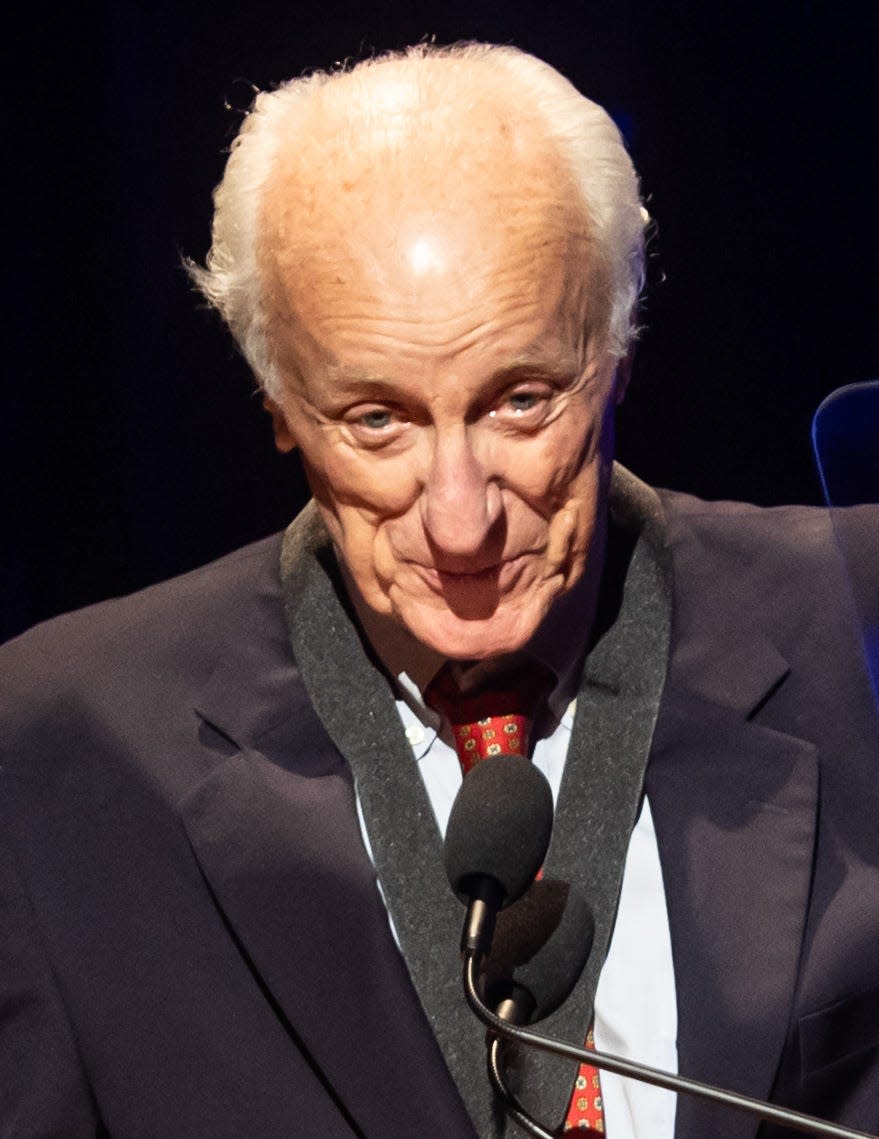
In the early years, that yielded work alongside Dickey Lee and Allen Reynolds, like "Catfish John" for Johnny Russell and "Amanda" for Williams (and Waylon Jennings). In 1973, the latter was referred to as "being as good as Shakespeare" by Clement and was a global country No. 1 hit.
Five years later, he'd penned the entirety of Bobby Bare's "Me and McDill" album. By 1980, Bare cut "Song Of The South," a generational country hit, alongside Mel McDaniel singing "Louisiana Saturday Night" and Ronnie Milsap performing "Why Don't You Spend the Night."
On Sunday evening, "Louisiana Saturday Night" was performed by Texas-born Americana Music Association 2023 Artist of the Year candidate Charley Crockett. Moreover, Country Music Hall of Fame inducted songwriter Dean Dillon performed a 1997 McDill-written cut, "All The Good Ones Are Gone," while Jamey Johnson crooned a stellar take on the 1979 Don Williams hit "Good Ole Boys Like Me."
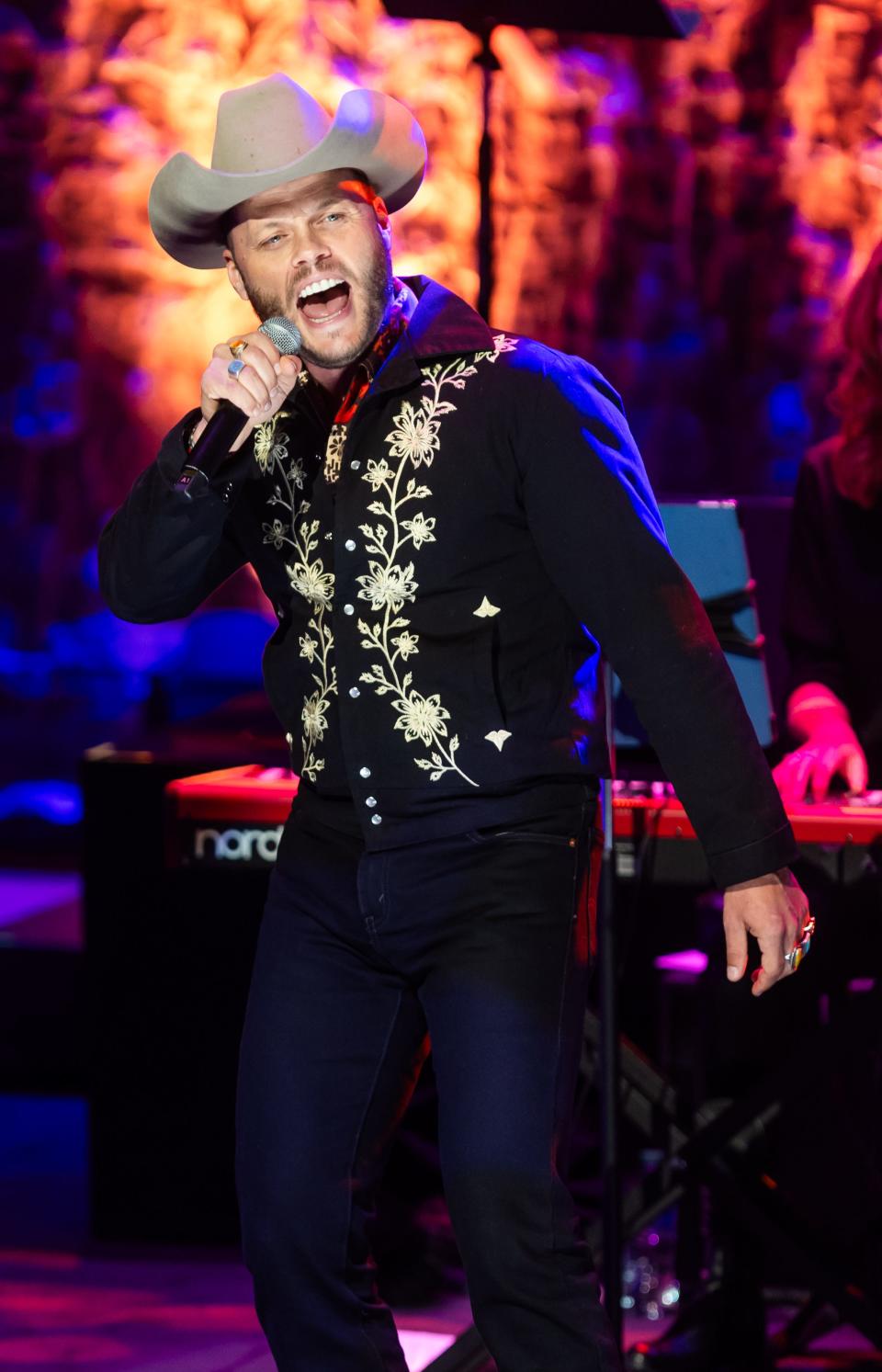
In the era when Young noted that it was often joked that song publisher Broadcast Music Inc. was known as "Bob McDill Inc.," he'd befriended another eventual Country Music Hall of Fame inductee as a songwriter, Don Schlitz.
Schlitz inducted McDill into the Hall of Fame on Sunday night.
When posing the question of the most significant lesson he'd ever learned from McDill, it's the only time that the frequently dry-witted Schlitz didn't follow his statement with a smile.
"You cannot write country music looking down your nose at it," stated Schlitz.
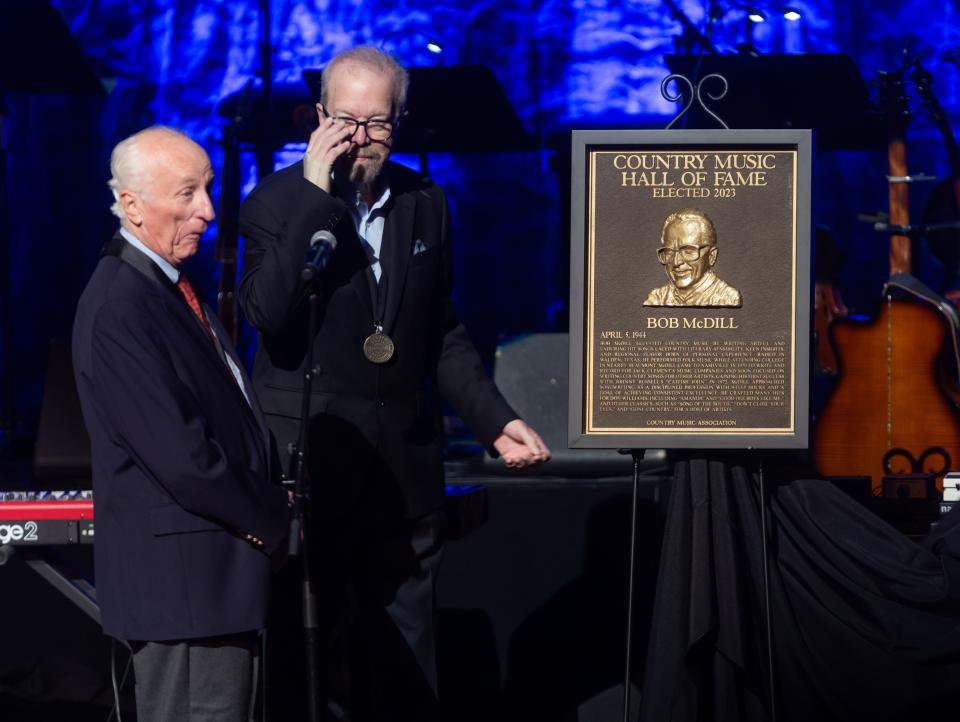
McDill's remarks were good-natured, humorous and wise and included the following lesson -- among many -- for all aspiring songwriters in the room.
"Members of the music-buying public are smarter than you think."
Patty Loveless
Pikesville, Kentucky native Loveless' journey to the Country Music Hall of Fame was a tireless journey that perpetually left the performer as a study in equal halves gratitude for the opportunities presented to her and willingness always to dig deeper than the moment to discover unparalleled authenticity.
Her authenticity met and often exceeded the stereotypical expectation of the genre's most often-used descriptor.
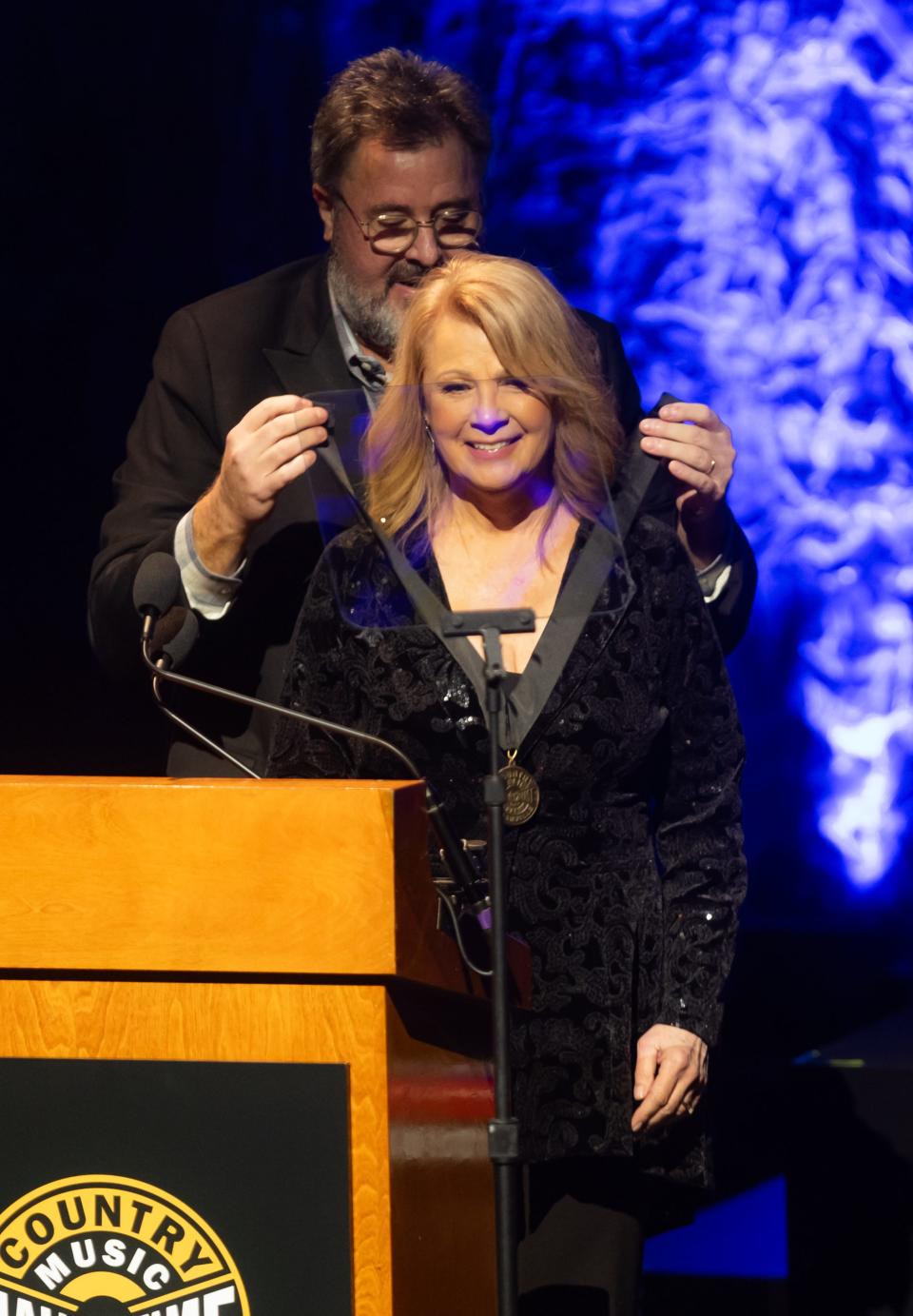
In a video that aired before her induction, Porter Wagoner -- who, alongside Dolly Parton and the Wilburn Brothers, were early champions of her talents -- noted that Loveless' "winning smile and genuine humanity" were two admirable traits about the aspiring country music performer who was making frequent trips -- alongside her brother Roger (who died in June 2022) from Kentucky to Music City.
Loveless' perpetual curiosity with popular music in an era where country, pop, rock and soul shared popularity on quarter-operated jukeboxes and radio dials led her to eventually pursue playing rock cover songs while surviving a difficult first marriage.
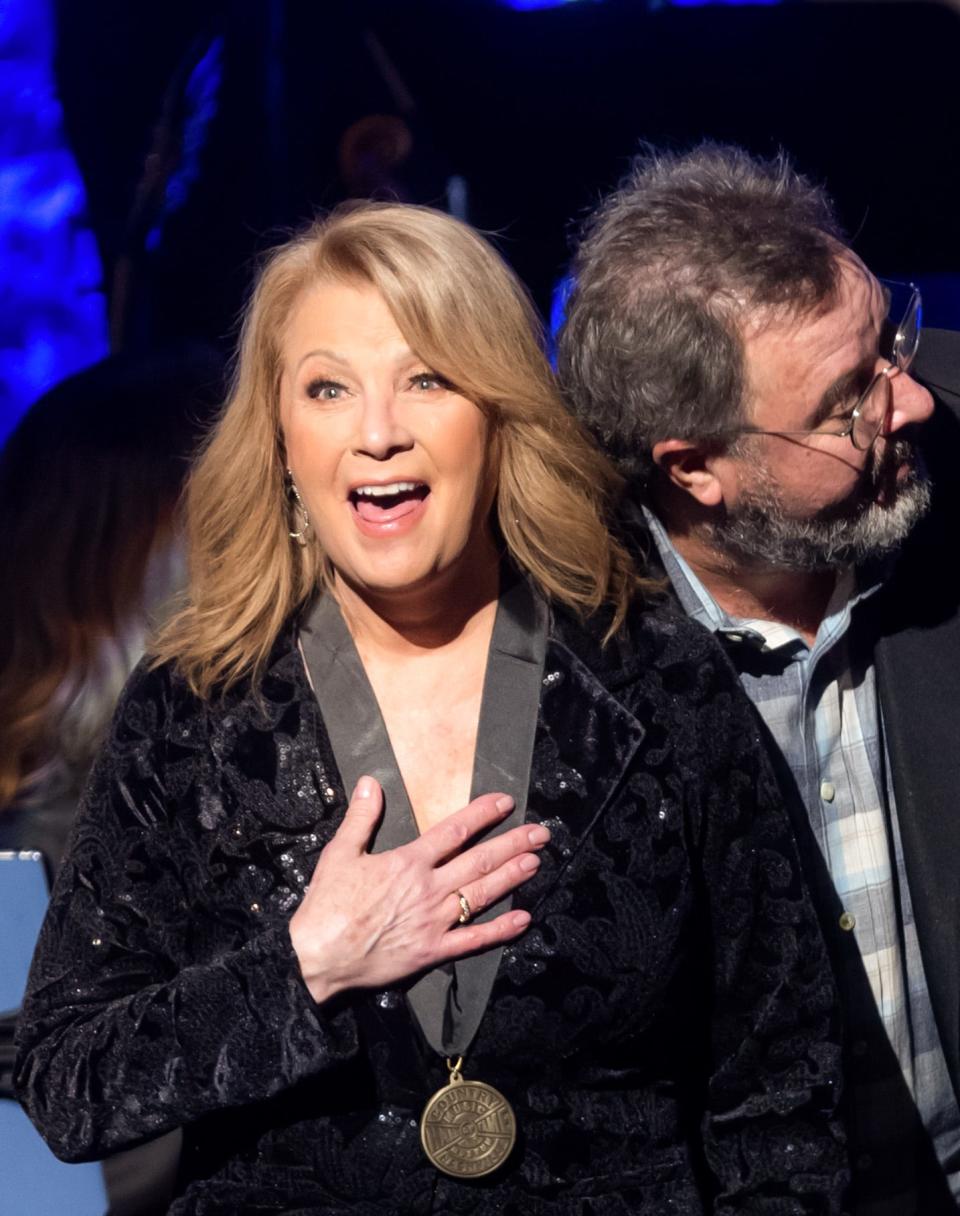
By the time Loveless returned to Nashville in the mid-1980s, acts like Pure Prairie League singer Vince Gill were beginning to emerge as vaunted newcomers to country's mainstream. Still fond of having a curious ear, Loveless was a fan of Gill's nascent stardom.
At Fan Fair in 1985, she told Gill that she was a fan of his work and that eventually they would sing together. Between Loveless' 1988 hit "If My Heart Had Windows" and Gill's 1990 breakout "When I Call Your Name," the duo achieved the goal Loveless had stated for them just a half-decade prior.
By 1993, Loveless' work with her second husband and producer, Emory Gordy Jr., blended with a progressive-minded take on cosmic cowboy rock and rootsy, soulful grit, found its most lucrative commercial home at Epic Records.
Between 1993 and 1996, Loveless' albums "Only What I Feel," "When Fallen Angels Fly" and "The Trouble with the Truth" were all platinum sellers.
In 1995, Loveless' "When Fallen Angels Fly" was the Country Music Association's Album of the Year. One year later, the performer won for Female Vocalist of the Year.
While inducting Loveless into the hall, Gill noted that he shared a "blood harmony" with Loveless, who was the "little sister he always wanted to sing with," having the "most authentic voice he's ever heard."
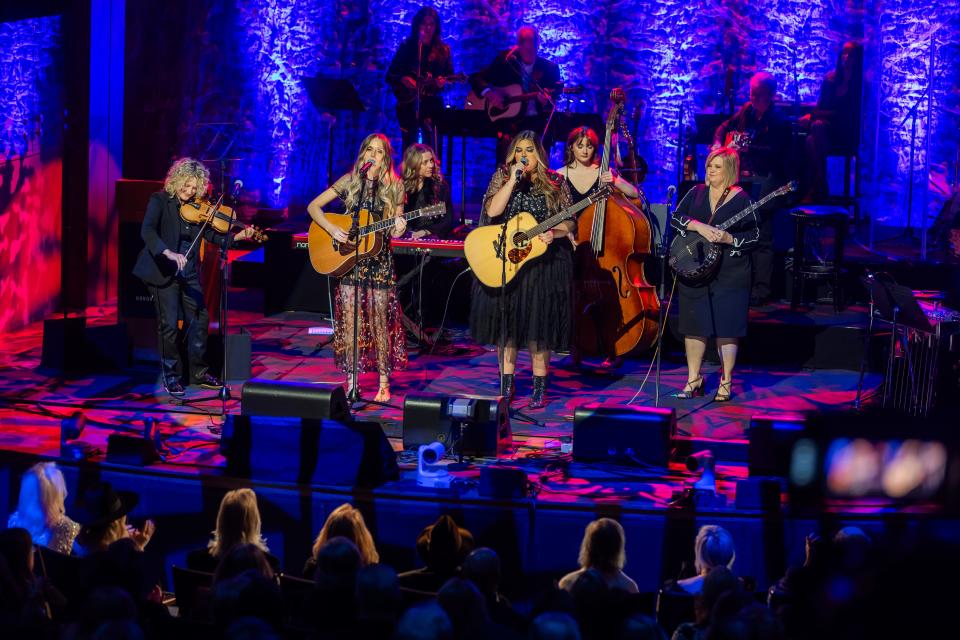
Bluegrass quartet Sister Sadie (whose fiddle player, Deanie Richardson, has toured with Loveless for two decades) performed the early Loveless cut "Sounds of Loneliness" while in a surprise that received a standing ovation, Rock and Roll Hall of Famer Bob Seger ripped through a take on 1996's "She Drew A Broken Heart."
Loveless paired with Seger for a 2006 duet, "The Answer's in the Question," on the "Old Time Rock n' Roll" singer's album "Face The Promise."
Gill also offered a rendition of a Loveless favorite of his, another 1996 release, "Lonely Too Long."
Loveless was self-admittedly "weak-legged" and "taken aback" by her induction. After honoring her brother's memory for his tireless support of her work, she added that it was "amazing that she has been blessed to live the life she lived."
Tanya Tucker
On Sunday evening, Tanya Tucker didn't ride the same black Friesian stallion onstage at the Country Music Hall of Fame and Museum's CMA Theater that she rode through downtown Nashville upon the announcement that she was to be inducted.
The only reason?
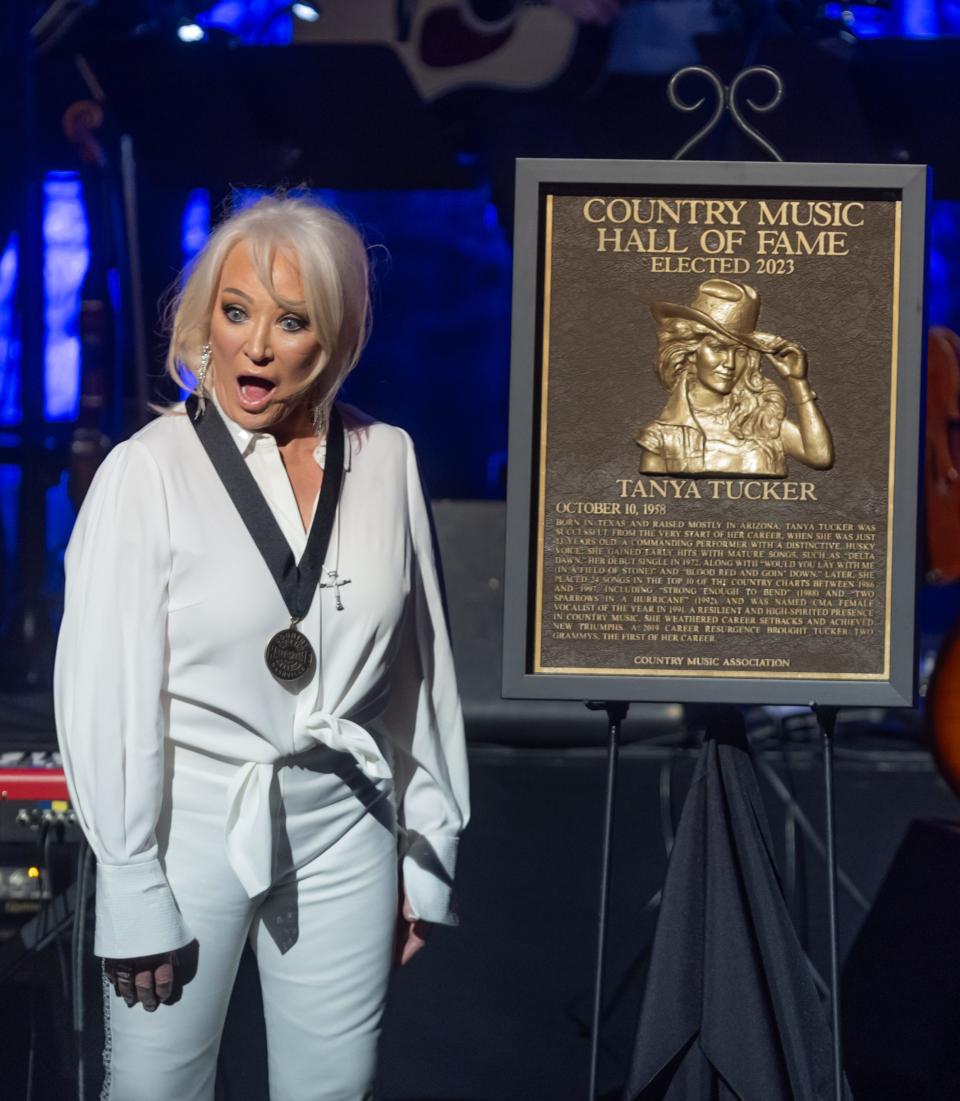
She likely didn't want to ruin her white rhinestone suit and matching cowboy boots she wore to the festivities to do so.
It's not as if the madness of riding a horse onstage would have been any less wild than the entirety of Tucker's hour-long induction segment.
"Country music's claiming their wild child," stated Hall of Fame and Museum CEO Young at the start of the evening's headline event.
Tucker is already the annals of the genre's greatest-selling female stars, including Reba McEntire, Dolly Parton, Loretta Lynn and Tammy Wynette. Upon reaching Nashville, leaped from prodigal superstar to millionaire princess of the genre to, as Chet Flippo wrote when Tucker became the genre's first woman on the cover of Rolling Stone in 1974, the "biggest thing in country music."
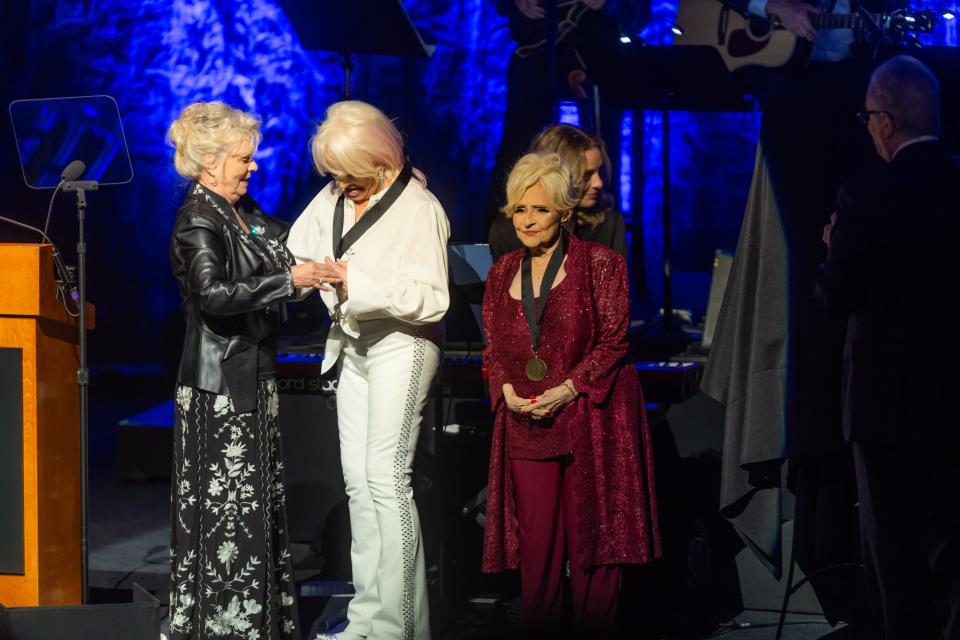
Three years later, Tucker was a Los Angeles rock superstar, living the fastest of lives with Glen Campbell.
Tucker's perpetual stardom amid what the performer noted at the event was a "surreal" journey "filled with ups and downs" still saw her retain the stardom necessary to achieve nearly two dozen top-10 hits between 1986-1997.
Thus, for as much as her career "revival" with the production assistance of Brandi Carlile and Shooter Jennings was a star re-casting moment (that saw Tucker achieve Grammy-winning success for her 2019 album "While I'm Livin'"), it also allowed a seemingly timeless party to evolve into another generation.
Tanya Tucker's greatest 21st-century party (so far) was held at the 2023 Country Music Hall of Fame Medallion Ceremony.
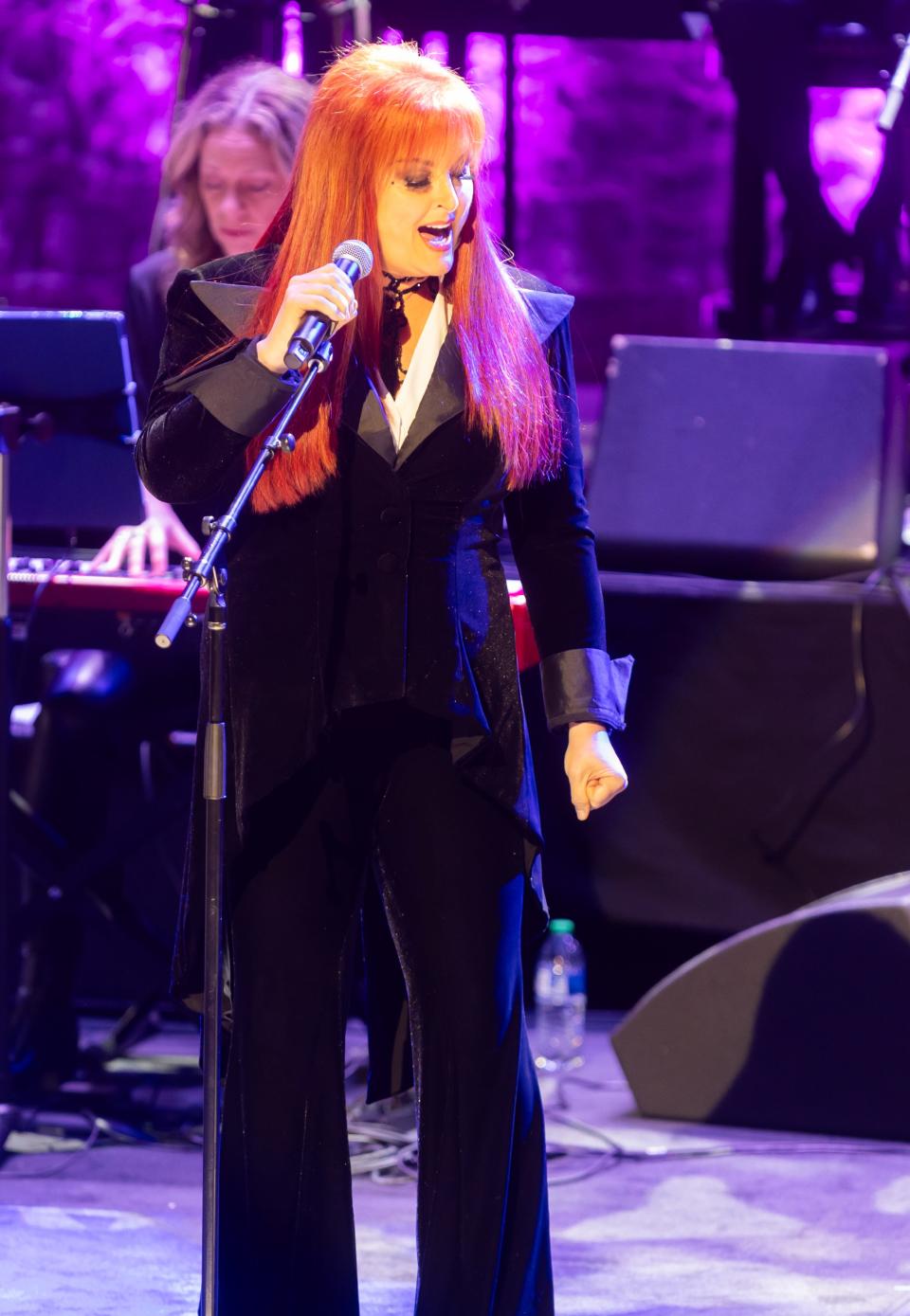
Was the most profound highlight April 2022 Hall of Fame inductee Wynonna Judd performing "Delta Dawn?" No. Was it Tucker being caught by the spirit of longtime friend Jessi Colter and American Music Association award winner Margo Price performing "A Little Too Late" and Tucker herself rushing the stage and shimmying like her idol Elvis Presley? No, but you're getting warm. Still, was it Tucker again getting onstage to join Carlile for "Two Sparrows In A Hurricane?" Maybe, but not quite.
Was it the interplay between Hall of Famers Connie Smith and Brenda Lee with Tucker? It most certainly was.
"I root for Tanya every time I see her," stated Smith, whose vocal stylings were early inspirations for Tucker's work. The diminutive Lee used a step-stool to approach the microphone and then engaged in remarks that were half a "Friars Club"-style roast of herself and an earnest set of statements, including celebrating Tucker's ability to "stay real and state her case -- like it or leave it, if you don't like it, don't listen" was forever her favorite trait of the "Strong Enough To Bend" singer.
"[Tanya] is who she is and you have to respect that," added Lee, as a room filled with as many people crying tears of pride as they were from their faces clenched in laughter.
This article originally appeared on Nashville Tennessean: Tanya Tucker, Bob McDill and Patty Loveless inducted into Country Music Hall of Fame
